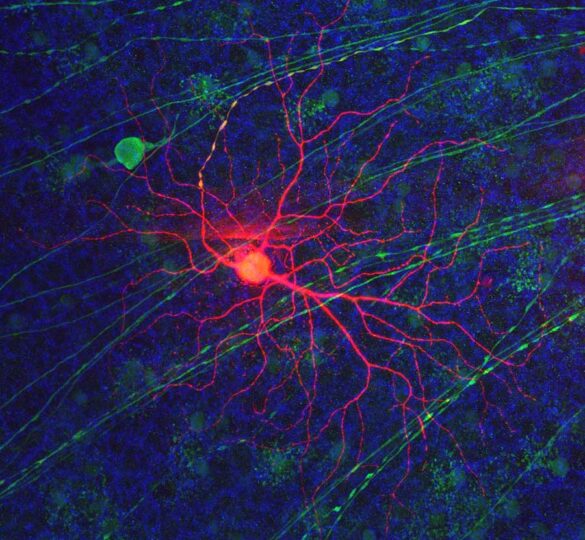Glaucoma Biomarkers: from the Laboratory to the Clinic

Catalyst for a Cure researchers have been taking necessary steps to move their studies from the laboratory to the clinic.
During the past year, the Catalyst for a Cure (CFC2) researchers have been taking necessary steps to move their studies from the laboratory to the clinic. This will be an exciting and important next step to further test and evaluate a new glaucoma biomarker.
Research Progress
Based on progress among the various laboratories and their collaborators, the CFC research team has narrowed their focus on three potential biomarkers. In addition, they are developing a new type of imaging test with the goal of isolating changes in the retinal ganglion cells that are first affected in glaucoma. Based on their success to date in models of glaucoma, the researchers are making significant steps toward moving into human testing and validation of a biomarker for clinical use.
Why We Need New Biomarkers for Glaucoma
New, sensitive and specific glaucoma biomarkers promise to provide eye doctors with better techniques to diagnose and treat glaucoma. Earlier detection is the key to preventing vision loss from glaucoma. The CFC researchers have been testing various hypotheses to develop a biomarker that eye doctors can use to identify glaucoma at a much earlier stage in its progression than current detection methods. Biomarkers also promise to help doctors target each patient’s treatment much more effectively.
New biomarkers can also lead to faster drug discovery. An effective biomarker could demonstrate the efficacy of a new drug much more quickly and accelerate the federal approval process for novel treatments. A new biomarker could open the door to the development of many innovative therapies to help patients preserve their vision.
Catalyst for a Cure — A Unique Collaboration
The CFC research team consists of neurobiologists, glaucoma specialists, and optical imaging engineers, who each bring a fresh and unique perspective to the collaborative study. The combined effect of their efforts allows the team to do experiments that no one lab would be able to do on their own, allowing for potentially transformative research advances.
The study of biomarkers promises to bring us closer to a cure, as scientists discover more about the root causes of the disease. Thanks to the dedication of the CFC and their advisors as well as the ongoing generosity of our donors, this transformational research can continue.
Principal investigators in the Catalyst for a Cure Biomarker Initiative are Alfredo Dubra, PhD, Jeffrey Goldberg, MD, PhD, Andrew Huberman, PhD, and Vivek Srinivasan, PhD.
First published on January 6, 2017; Reviewed on May 11, 2022